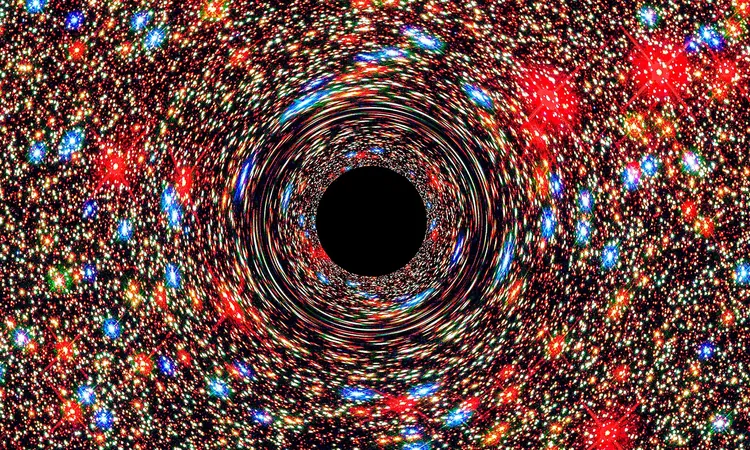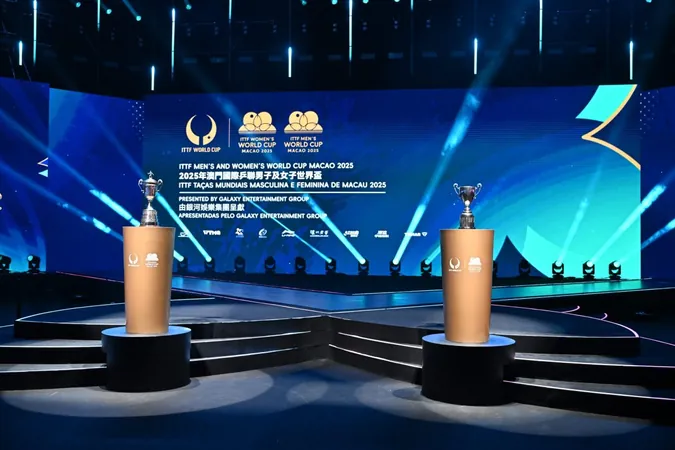
Revolutionary Breakthrough in Aggressive Lymphoma Treatment: Mount Sinai's Groundbreaking Trial
2025-01-23
Author: John Tan
Overview of the Trial
In a groundbreaking clinical trial led by Dr. Joshua Brody, MD, Director of the Lymphoma Immunotherapy Program at The Tisch Cancer Institute at Mount Sinai, an international team of researchers has made a significant advancement in the treatment of diffuse large B-cell lymphoma (DLBCL), a prevalent and difficult-to-treat cancer.
Details of the EPCORE NHL-2 Trial
The trial, named EPCORE NHL-2, explored the effectiveness of combining chemotherapy with immunotherapy for patients battling DLBCL. According to the results published in the esteemed journal Blood, this innovative approach demonstrates newfound hope for individuals whose lymphoma has returned after treatment or has shown resistance to standard therapies.
Significance of DLBCL
Lymphoma is notably the fifth most common cancer in the United States, with DLBCL being its most widespread subtype. For patients experiencing relapse or poor response to initial therapies, the traditional options have often included immunotherapy using CD3xCD20 bispecific antibodies or chemotherapy with gemcitabine and oxaliplatin. However, the EPCORE NHL-2 trial is the first of its kind to successfully integrate these two treatment modalities, achieving considerably higher complete remission rates compared to either treatment standing alone, while maintaining a similar safety profile.
Impact and Demographics
DLBCL accounts for approximately one-third of all non-Hodgkin lymphomas in the U.S., and its impact spans all age groups, although it predominantly affects individuals over 60, with an average diagnosis age of mid-60s. This aggressive lymphoma typically manifests as a rapidly enlarging tumor in lymph nodes, such as those in the chest, abdomen, neck, or armpits, but can also originate in less common areas like the intestines, bones, or central nervous system.
Expert Commentary
Dr. Brody emphasized the significance of this trial, stating, “For patients whose initial treatments have failed, options have been severely limited. Our study broke new ground by merging immunotherapy with chemotherapy to elicit remarkable results, leading to a substantial number of patients witnessing their cancer regress faster than with individual treatments.”
Future Directions
Looking ahead, Dr. Brody remarked on the potential of this combination therapy to revolutionize treatment protocols for patients struggling with relapsed or hard-to-treat DLBCL. More patients achieved complete remission through the combined approach, prompting interest in expanding research efforts. A separate upcoming study titled STARGLO aims to verify these promising results.
Conclusion
“Our next objective is to investigate whether this dynamic combination could be utilized as a standard part of initial treatments for DLBCL to benefit an even larger patient group,” Dr. Brody added, highlighting the promise of future advancements in oncology.
Collaborative Research
With the involvement of esteemed collaborators from the University of Michigan and Karolinska Institutet in Sweden, this research not only paves the way for more effective DLBCL treatments but also illustrates the collaborative effort necessary to combat one of cancer's toughest forms. The remarkable findings from the EPCORE NHL-2 trial could soon change the landscape of lymphoma treatment, offering hope to patients who previously faced limited options.




 Brasil (PT)
Brasil (PT)
 Canada (EN)
Canada (EN)
 Chile (ES)
Chile (ES)
 Česko (CS)
Česko (CS)
 대한민국 (KO)
대한민국 (KO)
 España (ES)
España (ES)
 France (FR)
France (FR)
 Hong Kong (EN)
Hong Kong (EN)
 Italia (IT)
Italia (IT)
 日本 (JA)
日本 (JA)
 Magyarország (HU)
Magyarország (HU)
 Norge (NO)
Norge (NO)
 Polska (PL)
Polska (PL)
 Schweiz (DE)
Schweiz (DE)
 Singapore (EN)
Singapore (EN)
 Sverige (SV)
Sverige (SV)
 Suomi (FI)
Suomi (FI)
 Türkiye (TR)
Türkiye (TR)
 الإمارات العربية المتحدة (AR)
الإمارات العربية المتحدة (AR)